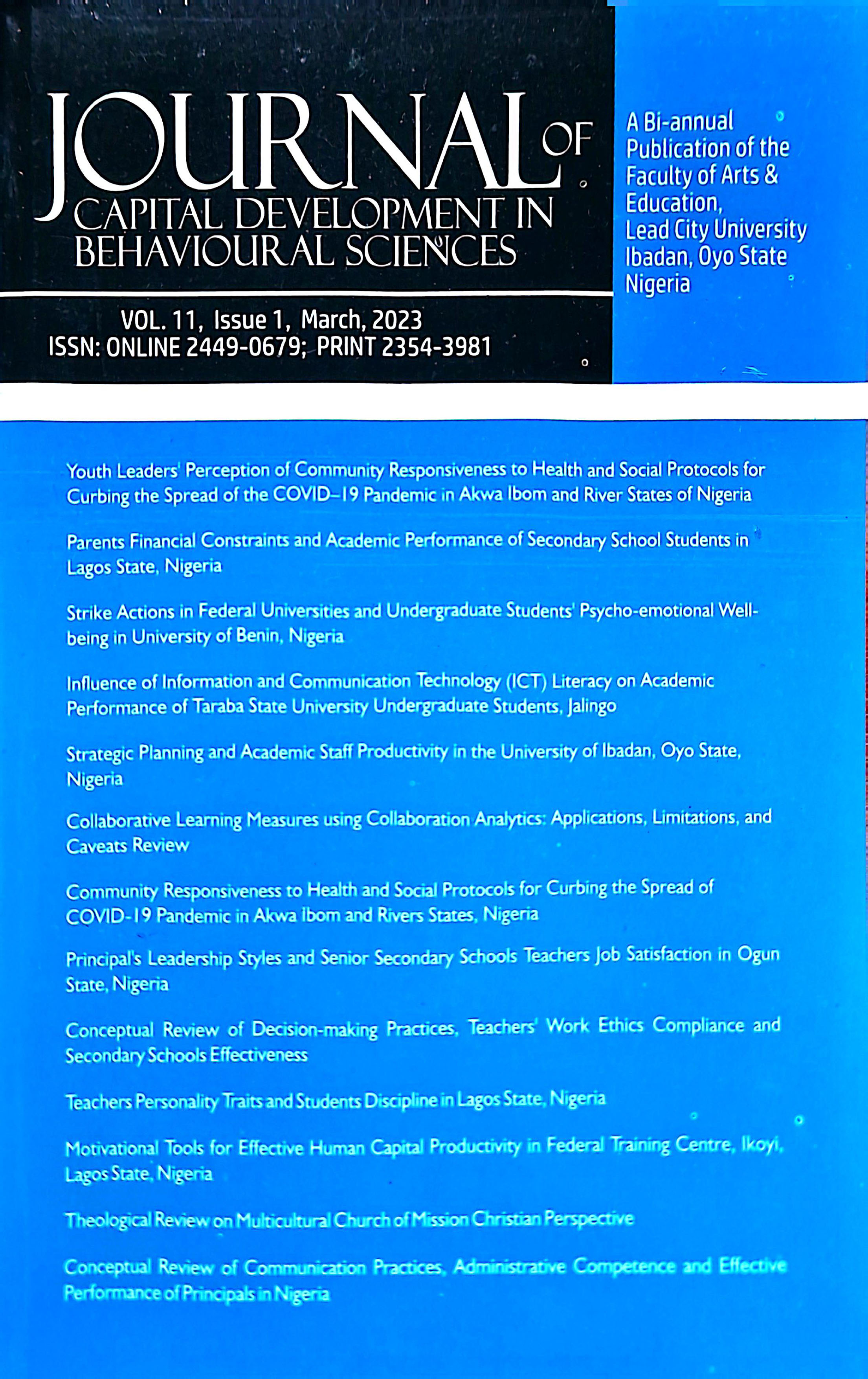Youth Leaders' Perception of Community Responsiveness to Health and Social Protocols for Curbing the Spread of the COVID – 19 Pandemic in Akwa Ibom and River States of Nigeria
Keywords:
Youth leaders’ perception, Community responsiveness, Health protocols, Social protocols, COVID-19 pandemicAbstract
The study examined youth leaders' perception of the extent of community
responsiveness to health and social protocols for curbing the COVID-19
pandemic in Akwa Ibom and River States of Nigeria. Two (2) research
questions and two (2) hypotheses guided the study. The design for the study
was the descriptive survey and the population comprised 3624 youth leaders
in Akwa Ibom and River States, from which 1450 (40%) were sampled using
the proportionate stratified random sampling technique. The instrument of
the study was a validated 39-item Youth Leaders Perception of Community
Responsiveness to Health and Social Protocols for COVID-19 Curbing Scale
(CRHSPCCS), designed by the researchers in the modified four-point Likert
scale, with a reliability index of 0.85, obtained using Cronbach Alpha
Statistics. Mean and standard deviation were used in answering the research
questions, while z – test was used in testing the hypotheses at 0.05 level of
significance. The results of the study showed that, youth leaders’ perception
of the extent of community responsiveness to health and social protocols for
curbing the COVID-19 pandemic was at a low extent and that there were no
significant differences between the mean ratings of youth leaders from Akwa
Ibom and River States on the extent of community responsiveness to health
and social protocols for curbing the spread of the COVID-19 pandemic in
Akwa Ibom and River States of Nigeria, respectively. The study concluded
that, the extent of responsiveness to health and social protocols for curbing
the spread of the COVID-19 pandemic in Akwa Ibom and River States tilted
negatively to health protocols and positively to social protocols.
Consequently, the study recommended that health workers should
endeavour to mount spirited enlightenment programmes on the severity of
the COVID-19 pandemic, so that, community residents can embrace
adherence to health protocols during health emergencies, just as social
workers should continue to educate community residents on the need to
embrace social distance and other social actions during periods of health and
social emergencies.

